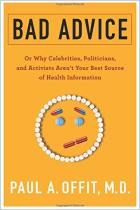
Recommendation
Heralded as one of humanity's greatest breakthroughs, vaccines nonetheless spark controversies in many countries and regions. In the United States and Europe, parents debate whether to vaccinate their children. In China, parents ponder the same question – for an entirely different reason: Several scandals surrounding fake vaccines have come to light, further eroding trust in medical institutions. In this article from Wellestudio163 – NetEase’s Wechat wemedia account on social issues – writer Chen Liangxian reports on the string of vaccine scandals and explains why fake vaccines are common in China. Chen provides interesting and useful background information and statistics on the topic, with infographics to help present the information. getAbstract recommends this article to readers interested in health care and the different issues surrounding vaccines.
Summary
About the Author
Chen Liangxian writes for NetEase’s WeChat Wemedia account Wellestudio163, which focuses on social issues, current events and trends.

















Comment on this summary or 开始讨论